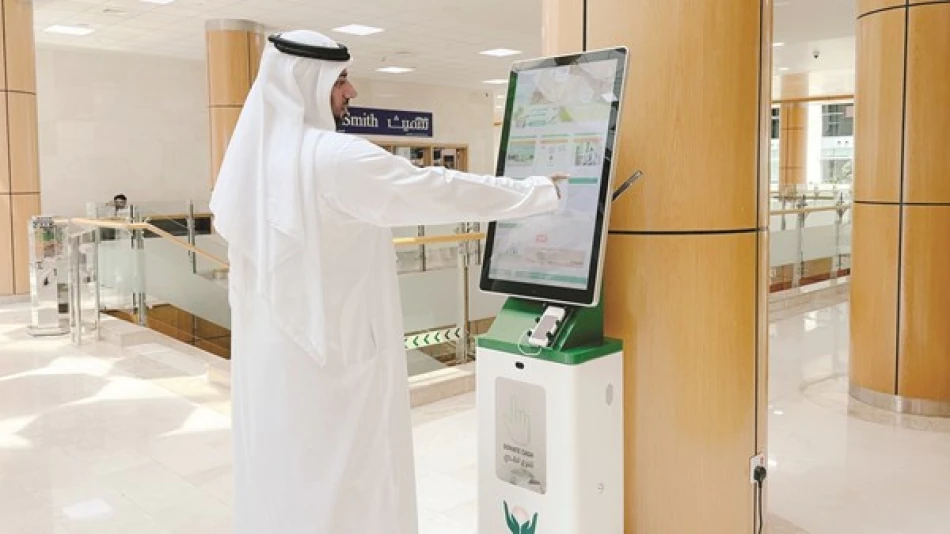
Sharjah Charity's Smart Donation Kiosks Simplify Giving at 9 Locations
Sharjah Charity Deploys Smart Donation Screens as Gulf States Embrace Digital Philanthropy Revolution
The Sharjah Charity Association has installed digital donation screens across nine strategic locations throughout Sharjah city, marking a significant shift toward tech-enabled charitable giving in the UAE. This digital transformation reflects broader regional trends as Gulf states modernize their philanthropic infrastructure to capture younger, tech-savvy donors while enhancing transparency and efficiency in charitable operations.
Strategic Deployment Targets High-Traffic Urban Centers
The charity has strategically positioned its smart donation terminals in locations with maximum public footfall, including Sahara Mall, Zero 6, Sharjah International Airport terminal, University Hospital, Burjeel Hospital, and NMC Royal Hospital. Additional screens operate at Al Zahia Mall, Mega Mall, and Sahara Mall, ensuring comprehensive coverage across the emirate's commercial and healthcare hubs.
According to Mohammed Rashid bin Bayat, Deputy Chairman of the Board of Directors, this rollout represents the first phase of a comprehensive digitization strategy. The charity plans to add six more screens in central and eastern districts, expanding its digital footprint beyond Sharjah city proper.
Technology Addresses Traditional Donation Friction Points
The digital screens eliminate several barriers that have historically limited charitable giving in the region. Traditional donation methods often required paperwork, human intermediaries, and lacked real-time feedback mechanisms. The new system allows donors to complete transactions with a single button press while maintaining complete privacy.
Enhanced Transparency Through Real-Time Reporting
Perhaps most significantly, the platform provides donors with detailed reports showing exactly how their contributions are utilized. Donors can track their money's impact through comprehensive breakdowns including project names, costs, and locations—whether domestic or international. This level of transparency addresses growing donor expectations for accountability, particularly among younger demographics who increasingly demand visibility into charitable operations.
Regional Context: Gulf States Lead Digital Philanthropy Adoption
Sharjah's initiative aligns with broader digitization efforts across the Gulf Cooperation Council states. The UAE has consistently ranked among global leaders in government digitization, and this extends to the charitable sector. Similar initiatives have emerged in Dubai and Abu Dhabi, where Islamic foundations and charitable organizations increasingly leverage technology to streamline operations and expand donor reach.
This trend mirrors developments in Singapore and parts of Asia, where digital donation platforms have significantly increased charitable giving rates, particularly among urban populations. Studies from these markets suggest that removing friction from the donation process can increase giving frequency by 40-60%.
Mobile App Launch Signals Comprehensive Digital Strategy
The charity's upcoming iOS and Android application launch indicates ambitions beyond physical donation points. Mobile-first charitable giving has proven particularly effective in markets with high smartphone penetration—a description that fits the UAE perfectly, with mobile penetration rates exceeding 95%.
The app strategy suggests the organization recognizes that modern philanthropy increasingly occurs outside traditional settings. By enabling donations "anytime, anywhere," as bin Bayat emphasized, the charity positions itself to capture impulse giving and regular micro-donations that have become significant revenue streams for digital-native charitable organizations globally.
Implications for Regional Charitable Sector Evolution
Sharjah Charity's digital transformation likely signals broader changes coming to the Gulf's charitable landscape. Traditional charitable organizations across the region face pressure to modernize as younger, digitally-native populations become primary donors. Organizations that fail to adapt risk losing relevance as giving patterns shift toward platforms offering convenience, transparency, and immediate impact feedback.
The success of this initiative could accelerate similar adoptions across neighboring emirates and Gulf states, potentially reshaping how charitable giving operates throughout the region. For donors, this represents a fundamental improvement in the charitable experience—transforming what was once a cumbersome process into something as simple as making a retail purchase.
Most Viewed News

 Layla Al Mansoori
Layla Al Mansoori






